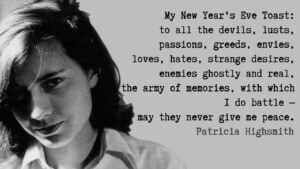Matthew Dicks's Blog, page 63
January 17, 2024
Inspirational speeches including an unlikely favorite
There have been many inspirational speeches throughout history.
Knute Rockne’s “One for the Gipper” speech.
The Saint Crispin’s Day speech from Shakespeare’s Henry V (which sounds surprisingly like the speech that the President gives before the final battle against the aliens on Independence Day).
Winston Churchill’s address to the House of Commons following the evacuation at Dunkirk.
Martin Luther King’s “I Have a Dream.”
And this. Unnamed boy’s speech upon learning to ride a bicycle. Always one of my favorites:
January 16, 2024
Not one book?
A recent YouGov poll found that 46 percent of Americans did not read a book in 2023.
As an author, this number alarms me.
As a teacher, it deeply saddens me.
As a human being, it crushes my soul.
Not a single book read in an entire year? How is this possible?
Someone recently lamented about not having enough time to read. I allowed the conversation to proceed for a while before asking, “Are you watching any good TV shows right now?”
She had listed seven television shows before I stopped her and said, “I thought you didn’t have time to read?”
“That’s different,” she said.
I didn’t know her well enough to press the issue, but it’s a good reminder for all of us:
We have enough time. It’s how we choose to spend our time that defines our lives.
Author H. Jackson Brown said it this way:
“Don’t say you don’t have enough time. You have exactly the same number of hours per day that were given to Helen Keller, Pasteur, Michelangelo, Mother Teresa, Leonardo da Vinci, Thomas Jefferson, and Albert Einstein.”
According to the poll:
26 percent of respondents reported reading between one and five books10 percent between six and ten books8 percent between 11 and 20 books,11 percent more than 20 books6 percent over 40 booksI read 25 books in 2023 – an admittedly high number for me – which might make me feel good until I look over at my daughter, Clara, who is reading while I write these words.
She easily read more than 100 books in 2023. Big, thick books, too. Doorstops.
She gives me hope.
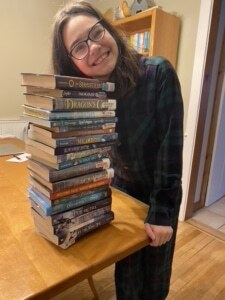
January 15, 2024
MLK Day: A decade later thanks to my willingness to hold onto the past
Ten years ago today, I wrote about Martin Luther King Day and my daughter, Clara.
It’s the epitome of why I write so much. Had I not taken the time to record this moment a decade ago, it would have been lost to me (and Clara) (and the world) forever.
Instead, I “took care of my future self” (a phrase I use often) by sitting down and recording a meaningful moment from day 3,652 days ago.
I read it this morning, and like magic, the moment returned to me with enormous clarity. I found myself swimming in the waters of January 2014. I was sitting on a green couch I no longer own, talking with a little girl who is now a teenager.
Homework for Life. Journaling. A daily blog. Somehow, some way, spend a few moments each day holding onto the things most precious in our lives:
Our memories of meaningful time spent with friends, loved ones, and ourselves.
Your future self will be so happy you did.
Here’s what I wrote that day:
_______________________________________
I told my four-year-old daughter I didn’t have to work because it was Martin Luther King Day. “That’s a day when we celebrate the life of a man named Martin Luther King.”
“I know,” she said, almost dismissively.
“You know about Martin Luther King?”
“Yes,” she said. “We read a book about him in school. And we talked about him.”
I was impressed. “What do you know about him?”
“He was a man who was shot and had to die,” she said. “He helped a lot of people.”
I was a little surprised that she even knew what being shot meant (and maybe she doesn’t), but I pressed on. “How did he help people?”
“He taught people how to share. No matter what color they are. That’s why I sometimes have a hard time sharing. Because someone had to shoot him, so now he’s not here anymore to help me anymore.”
She sounded annoyed. Angry, even. Like someone had taken Martin Luther King away from her, which is essentially true.
Not bad.
A basic understanding of Dr. King’s message, wrapped up in the self-centeredness of a four-year-old child.
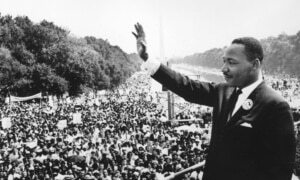
January 14, 2024
Don’t listen to stupid resolution people
As the New Year approached, you might have seen or read articles on why New Year’s resolutions never work and are best avoided.
It’s a trope that media outlets love to roll out this time of year.
It’s nonsense.
New Year’s resolutions (and goal setting in general) work for those motivated to achieve the desired results, work hard to meet their goals, and set sensible, specific, effort-centered resolutions.
Since 2010, I have been posting my New Year’s resolutions on my blog and social media and charting my progress month by month. While my New Year’s resolution success rate over the past fourteen years stands at just over 55 percent, my life has changed immensely thanks to my yearly goal setting and pursuit of these goals.
This can be true for anyone. My advice:
Examine your life closely for opportunity and desire.Identify what you could and should be doing.Stop allowing inertia, complacency, and fear to stand in the way.Set specific, measurable goals not predicated by the efforts or decisions of others.Make a plan to accomplish each.Check on progress regularly and create a schedule for this.Create a system of accountability.Accept failure as a necessary part of the process.Embrace incremental change instead of enormous leaps.Remind yourself repeatedly about what your life would look like if you achieved your goals.Remember that most people fail to accomplish their New Year’s resolutions, but you’re better than most.Doing so can truly change your life, even if you’re only succeeding 55% of the time.
Here are just a few of many examples:
____________________________________
In 2010, I resolved to floss every day. I have not missed a day of flossing since. It’s simply become something I do.
Incidentally, if you would like to start flossing, I suggest that you place the floss in the shower. Doing this creates an incentive:
Who would pass up an extra 30 seconds in the shower to be productive and extend your life?
Did you know that flossing regularly increases lifespan? Researchers have found this to be true again and again.
I gave this advice at a book talk once (in response to a question about how routines make me more productive), and about six months later, a woman wrote to me to say that while she appreciated everything about my talk, the advice on flossing had changed her life. She’s flossed daily since my talk, and her gums have never been so healthy and pain-free.
It’s not complicated. You, too, can be a dental nerd like me.
____________________________________
Also, in 2010, I established the goal of losing 10 pounds, and I have since lost 68 pounds and entirely changed how I live.
I exercise almost every day.I know the calorie count of almost every food item that I eat.I’ve permanently reduced meal portions.I look better, feel better, and have more energy than ever before.That single goal, set 14 years ago and achieved incrementally, has changed how I eat, exercise, and live ever since, and it will likely provide me with a longer, healthier life.
____________________________________
To reduce my cholesterol levels, I resolved to eat three servings of oatmeal a week in 2011. Since then, I have continued to eat at least that much oatmeal as part of my workday lunch. It’s a perfect midday meal: Easy to make, filling, low in calories, and delicious.
Some of my colleagues think I’m crazy for eating the same thing almost every day, but absent any other change, my cholesterol dropped 40 points in a year and is now well within healthy guidelines.
While so many people are on medication to control their cholesterol, I am not.
____________________________________
2011, after two years of saying I would do it, I finally resolved to drop my name in the hat and attempt to tell a story at The Moth. That resolution, perhaps more than any other, has changed my life.
Since that first Moth StorySLAM in New York City, I’ve attended over 200 Moth events nationwide. Performed in many of their prestigious Mainstage shows and Moth Ball events. Competed in 105 StorySLAMs. Won 59 of them along with 9 GrandSLAM championships.
More importantly, storytelling has changed my career trajectory. Performing for The Moth and then around the world led to the launch of Speak Up, the storytelling organization Elysha and I own and operate.
Also Storyworthy, both the bestselling book and business by the same name.
I also have a successful consulting business with everyone from Fortune 100 companies to Olympic athletes, clergy members, and the FBI. It’s led to my public speaking career, including a dozen TEDx Talks. It turned me into a stand-up comedian, performing last year at the New York City Comedy Festival. It ultimately led to the writing and performing of my first solo show.
This year, I’ll publish my second book on storytelling. I’ve joined a start-up centered on storytelling. I’m writing my second solo show while preparing to tour my first.
One goal – put my name in the hat at a Moth StorySLAM – expanded my life beyond imagination.
This is what happens when you refuse to allow inertia and fear (as I was doing) to stand in your way.
____________________________________
For nearly ten years, my resolutions included “Find a way to keep Elysha home for one more year with the kids.”
But as I wrote that goal down, I didn’t know how we’d ever live on one income with two kids for another year. I hadn’t yet begun my speaking and consulting career, so unless I sold another book or landed a boatload of DJ gigs, I didn’t think it was possible.
Even if I managed to publish a book and work a bunch of weddings, I wasn’t sure if it could happen.
But as soon as I wrote the goal down, my mindset instantly shifted from “Can I make this happen?” to “How am I going to make it happen?”
Writing down a goal is a tangible means by which you both acknowledge its importance and make yourself accountable for trying to attain it. It moves the goal from a “ridiculous pipe dream” to a “necessary, realistic possibility.”
Somehow, Elysha and I figured it out every year for a decade. An essential part of that was setting that goal at the beginning of each year.
Of all the things I’ve done in the last 14 years, I’m proudest of this goal. I know how much my wife and children benefited from that decade she spent at home.
So don’t let anyone fool you. New Year’s resolutions (and goal setting in general) can change your life for the upcoming year and sometimes forever if you treat the process seriously and apply yourself using some or all of my recommendations.
It’s not too late.
Remember: Based on my completion rate over the last 14 years, I would receive an F on my report card.
A score of 55% is not exactly scintillating.
Yet I know with all my heart that my life is unimaginably better because of my willingness to set goals every year and work like hell to accomplish them. I also know that many of the things that have made my life better would never have happened had I not spent the time to choose and plan and strive for their success.
You, too, can be a failure like me. I believe in you.

January 13, 2024
Florida and Texas banning books is a stupid and wonderful thing
Looking for a new musician to love?
Pink, whose music I already like a lot, recently announced her plan to give away 2,000 banned books at each of her coming Florida concerts.
She’s teamed up with PEN America and the Florida bookstore Books & Books to combat book bans, especially those targeting authors writing about race and sexual identity.
“Florida overtook Texas during the last school year with more books banned in public school classrooms and libraries than any other state in the union,” according to newly released data, PEN America said.
Congratulations, Florida. Along with the great state of Texas, you now lead the nation in book banning, which definitely makes a lot of sense. If you ban books about systemic racism and gender identity, it will be absolutely impossible for these smartphone-addicted, internet-savvy kids to gain access to any of this content elsewhere.
After all, if you can’t learn about something in a book, where else could you possibly go for unfettered access to that information in 2024? When it comes to knowing stuff, your only realistic option is a book.
Right?
Of course, banned books often see a dramatic increase in sales due to the banning, too. The books “Maus I” and “Maus II” by Art Spiegelman saw a 130 percent bump in sales and media coverage after a Tennessee school board banned them in January.
Author Ibram X. Kendi also saw sales for his book, “Antiracist Baby,” increase 5,000 percent in March after Texas Senator Ted Cruz criticized it during the Supreme Court hearing for Judge Ketanji Brown Jackson.
So, in some ways, Florida and Texas (and every other book-banning moron) are directly responsible for the proliferation of these banned titles, including many in their own states.
The more you attempt to limit access to these books, the more these books exist in the world.
Florida and Texas: Two very progressive states driving awareness and sales of books on subjects like systemic racism and gender identity.
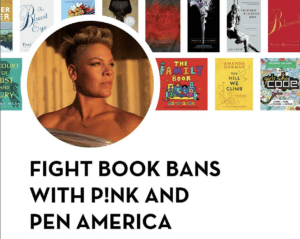
January 12, 2024
Slight revision to an excellent quote
“If you can’t ignore an insult, top it; if you can’t top it, laugh it off; and if you can’t laugh it off, it’s probably deserved.”
– Russel Lynes
I love this quote, but I’d like to revise it a bit:
“If you can’t ignore an insult, top it.
If you can’t top it, laugh it off.
If you can’t laugh it off, ignore it.
And if you can’t do any of those things, it’s probably deserved.”
Sometimes, an insult can’t be laughed off because it’s not funny.
But ignoring an insult? That’s often possible, and best of all, it can frustrate and annoy the person insulting you.
No one likes to be ignored, and it can be excruciating for the kind of people who lean into insulting and name-calling:
Small-minded ignoramuses and fragile egos.
I also removed the semicolons from the quote because they are too damn slippery for my liking. I’ve published six novels and two books of nonfiction (with at least one more of each on the way), and I’ve never used a semicolon even once.
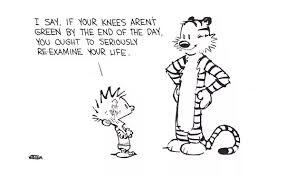
January 11, 2024
Two things make this commercial especially effective
It’s not often that a commercial supports two distinct and divergent purposes so equally well. I won’t say more lest I ruin the video before you can watch it.
But you’ll understand what I mean after you watch.
The effectiveness of the commercial is predicated upon two storytelling strategies found in almost every great story ever told:
Contrast and surprise
Contrast is an incredibly economical and memorable way of describing and defining a person, object, or concept. Place two contrasting things side-by-side, and you’ve likely created a clear and indelible image in your audience’s mind.
Contrast can also effectively illustrate blindspots, misconceptions, and misunderstandings, as it does here. When done well, it can almost feel like a punch in the gut.
Courtroom scenes in movies like A Time to Kill do this especially well.
Surprise is the most delightful and memorable thing a storyteller can offer an audience. It’s the moment when the storyteller turns over a corner of the universe to expose something the audience could not conceive of moments before.
When performing onstage, there is nothing more glorious than the sound an audience makes when they are collectively, supremely surprised.
Surprise is also the thing that most storytellers fail to exploit, either in their inability to recognize moments of potential surprise or (more often) spoiling those moments through a multitude of tragically common, nonsensical decisions.
But when done well, as it’s done here in this commercial, the results can be quite extraordinary.
Sometimes, surprise can even make us rethink our view of the world entirely, as this commercial may do for some.
January 10, 2024
“When Harry Met Sally” is “When Matty Met Elysha”
I was recently listening to The Rewatchables, a podcast about films people love to watch again and again. They were discussing “When Harry Met Sally” and debating how realistic it would be for Harry and Sally to end up together after the film.
Both women on the podcast argued that although it’s the happier, more satisfying ending, these things don’t happen in real life.
Friends like Harry and Sally never marry, they said. Improbable relationships never end happily ever after.
“Nonsense,” I thought. “Why so jaded and cynical?” I wondered. Elysha and my marriage was just as improbable as Harry and Sally’s marriage, yet we are currently living happily ever after.
When I met Elysha in the waning days of the summer of 2002, I was ending a marriage to another woman, and Elysha was engaged and just a few months away from being married to another man. Yes, my marriage was ending, and yes, Elysha was beginning to have doubts about her engagement, but still, we were both committed to other people when we met and definitely not available.
Elysha and I first laid eyes on each other on a late August day during our first faculty meeting of the school year. She had just been hired to teach at Wolcott School, and I had taught there for three years.
I remember thinking that Elysha was beautiful, young, and impossibly cool—the kind of girl who would never even look in my direction.
She remembers thinking of me as one of the cool kids, laughing and joking my way through that first meeting with my faculty friends.
We started as colleagues, with a single classroom separating our two classrooms. Our first real conversation occurred during a hike with students around the lake at Camp Jewell in Colebrook, CT. Elysha was telling me about her upcoming wedding, and as a wedding DJ, I offered her advice on her upcoming wedding and told her about my wedding.
An improbable movie moment, if ever there was one.
Eventually, Elysha and I became friendly. She asked me to do her taxes. I dropped her off at a garage to pick up her car. She and I took students to lunch at The Rainforest Cafe at the end of the school year as part of a raffle prize. We brought students who had never visited an art museum to the Wadsworth Atheneum.
Elysha didn’t know it then, but it was also my first visit to an art museum.
We were friendly, but after that meal with the students, we said goodbye for the summer, never speaking until the beginning of the next school year.
We were friendly, but we certainly weren’t friends.
Elysha called off her engagement about two months before the wedding, and around that same time, I officially separated from my wife. Even then, we didn’t even think about getting together. After picking ourselves off the ground, we eventually began dating other people. A colleague introduced Elysha to a friend, which started an almost year-long relationship with another man. I dated a few people during that time, including our school psychologist, but nothing serious.
Like Harry and Sally’s relationship, ours deepened during that time, but still, there was no romance. We were simply good friends dating other people.
About a year later, as our relationships with those other people began to wane, we finally turned toward each other. In truth, I had noticed Elysha right from the start but had always assumed that she was too beautiful and – more importantly – too cool ever to be interested in me. The fact that she was my friend was thrilling enough.
But as our late-night phone calls grew longer and longer and we shared more and more of our lives, I started to wonder if it was possible that Elysha Green could actually like me.
Like like me.
Honestly, I thought it impossible.
Elysha made the first move during a hike on Mount Carmel in Sleeping Giant State Forest. On the way down the mountain, she reached out and held my hand.
I couldn’t believe it.
Later that night, in our school’s parking lot, she told me she liked me.
My response: “I’m flattered.” Nothing more.
Please don’t ask me why. I’m stupid sometimes.
Five minutes after she drove off, I replayed the conversation and realized how stupid I had been.
“I’m flattered? What was I thinking? She likes me!”
I panicked.
I called to apologize and tell her I liked her, too. Had liked her for a long, long time. But Elysha was famous then (and now) for not listening to voicemail messages, so I went to bed worried that I had blown my chance with the most incredible woman I had ever known.
Classic romantic comedy misconnection.
The next day, I found a note on my desk, written by Elysha, apologizing for risking our friendship with romance. She asked me to forget what she said and continue to be her friend.
I grabbed the note, raced to her classroom, and tossed it onto her desk, rejecting it wholly and completely.
That night, we kissed for the first time in the parking lot outside my apartment.
Two months later, we moved in together. Six months after that, I asked Elysha to marry me on the steps of Grand Central Terminal in New York City while two dozen friends and family secretly watched amongst the crowd of holiday travelers.
Eighteen months later, on July 15, 2006, we were married.
Friends like Harry and Sally never get married? Improbable romances never work out?
Nonsense, I say!
I could write a screenplay about our relationship – a great romantic comedy – and those two jaded podcast hosts would probably say the same thing:
A boy and girl meet at work. One is married. The other is engaged and about to be married. Their first conversation is about the girl’s pending nuptials. Over time, they become friendly.
Then, the boy’s marriage ends in divorce. The girl calls off her engagement just a few months before the wedding. They engage in new relationships with new people while becoming better and better friends.
Those relationships with other people begin to fail, and then one day, while hiking together on a mountain, the girl reaches out and takes the boy’s hand.
His heart bursts with joy.
Later, she confesses her love to him. He fails to reciprocate because boys are stupid. Eventually, he chases her down and corrects his mistake. Confesses his love.
They kiss. Marry.
Today, they have two kids. A home. Two cats. A brilliant, beautiful life together.
“Yeah, right,” those podcast hosts would say. “Never happens.”
Improbable? Maybe.
Impossible? Nonsense.
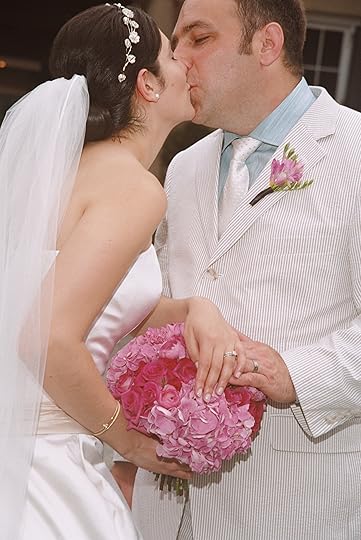
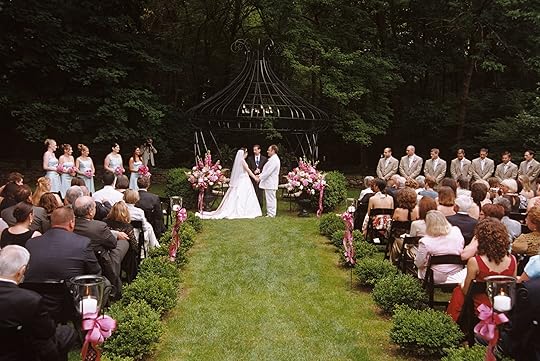
January 9, 2024
Warmly
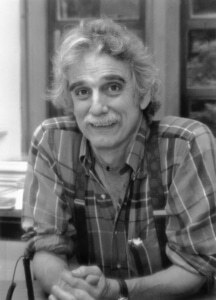
January 8, 2024
Never give me peace
Author Patricia Highsmith, in her journal on December 31, 1947
2:30 A.M. My New Year’s Toast:
To all the devils, lusts, passions, greeds, envies, loves, hates, strange desires, enemies ghostly and real, the army of memories, with which I do battle—may they never give me peace.
I love this so much.
Highsmith wasn’t exactly a great person – a racist and antisemite – but still, her words on this particular night in 1947 mean a lot to me.
I’ve struggled with post-traumatic stress disorder as a result of, among other things, a violent armed robbery when I was 21 years old.
While I’m in a far better place than ever before in terms of mental health, PTSD remains a constant hum in the background of everything I do. It’s always there, unforgettable, immutable, and relentlessly altering how I see the world.
Therapy has brought my PTSD under control, but it’s never entirely cured me. Never completely mitigated its influence on how I think, feel, and live my life.
I’ve been told many times that therapies like EMDR (Eye Movement Desensitization and Reprocessing Therapy), Cognitive Behavioral Therapy, and especially EFT (Emotional Freedom Techniques or “tapping”) have proven to be exceptionally effective at eliminating the power of PTSD over patients completely. I’ve been urged to give these methods a try by people who care about me and many strangers who know about my condition and want to help.
I’ve avoided all such therapies for one simple reason:
PTSD is an integral part of me. It’s honed, sharpened, strengthened, and, most importantly, helped me become the relentless person I am today. It sits in the back of my mind, quietly humming away, constantly reminding me of the fragility of life and the precipice where I once stood. It’s attached to violence and terror, of course. The worst moment of my life. A moment I would never wish upon another human being. Never wish upon my younger self.
Yet it’s also a moment that, if given a chance, I don’t think I would ever undo.
It was awful beyond imagination. Crippling at many points in my life. But impossible to imagine living without.
There are admittedly moments when PTSD becomes more than just a background hum, and in those moments, it’s absolutely, positively no fun. Difficult and distressing and even debilitating. But thanks to therapy, those moments are fewer and farther between than ever before, and I’m far better at managing them when they arrive.
And they may be worth the struggle. Again, PTSD is not something any human being in this world should ever have to endure, and yet, endure it, I will, even with opportunities to possibly rid myself of it entirely.
When something becomes a fabric of your being, it’s hard to imagine stripping it away, even when that fabric is coarse, frayed, and at times unwieldy.
I’ve talked about this with Elysha, and she oddly, surprisingly agrees. After nearly 20 years together, she understands how PTSD has helped me become who I am and how it’s an essential part of my identity.
The thought of eliminating it completely frightens me. It’s an undiscovered country that I cannot begin to imagine.
I suspect Patricia Highsmith would understand and agree as well. She did not wish for peace on New Year’s Eve in 1947. She did not hope for success or ease or happiness. She did not yearn for freedom from pain or strife.
Instead, she hoped that “all the devils, lusts, passions, greeds, envies, loves, hates, strange desires, enemies ghostly and real, the army of memories, with which I do battle—may they never give me peace.”
Yes. That makes sense to me. A whole lot of sense.
